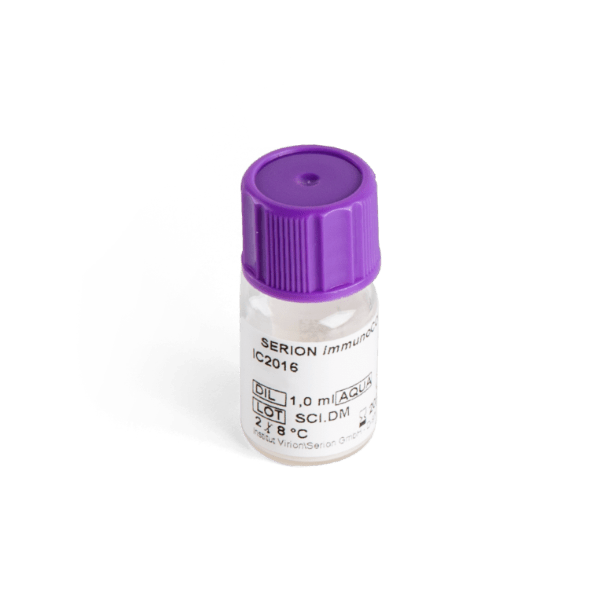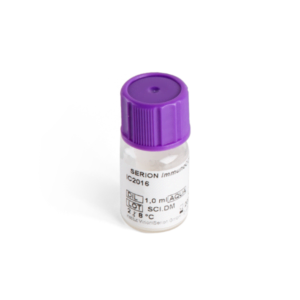| Weight | 1 lbs |
|---|---|
| Dimensions | 9 × 5 × 2 in |
| target | Diphtheria reactive IgG |
| species reactivity | Corynebacterium diphtheriae |
| applications | ELISA |
| assay type | Indirect & quantitative |
| available size | 3 mL |
Diphtheria IgG Control Serum BC130G
$94.00
Summary
- Virion/Serion Diagnostic Kit Control for research use (RUO)
- Diphtheria IgG Control Serum
- Applications: ELISA
- IgG control serum
- Ready-to-use; pre-diluted for SERION ELISA classic and SERION ELISA antigen assays
- 3 mL
Diphtheria IgG Control Serum BC130G
| kit |
|---|
| Research area Infectious Disease |
| Storage Store at 2-8°C. |
| Associated products Diphtheria Toxoid Control Antigen (BA130VS) Diphtheria IgG Control Serum (BC130G) Corynebacteria dyptheriae IgG ELISA Kit (ESR130G) |
| target relevance |
|---|
| Organism Corynebacterium diphtheriae |
| Protein names Corynebacterium diphtheriae |
| Structure and strains Corynebacterium diphtheriae is the pathogenic bacterium that causes diphtheria. The bacteria are usually harmless unless they are infected by a bacteriophage that carries a gene that gives rise to a toxin. This toxin causes the disease. Diphtheria is caused by the adhesion and infiltration of the bacteria into the mucosal layers of the body, primarily affecting the respiratory tract and the subsequent release of an endotoxin. The toxin has a localized effect on skin lesions, as well as a metastatic, proteolytic effects on other organ systems in severe infections. |
| Detection and diagnosis Diphtheria is caused by Corynebacterium diphtheriae. The diphtheria toxin is responsible for pathogenicity. For practical and economic reasons a passive hemagglutination test was used for the detection of diphtheria antitoxin in human serum samples. It is specified in international units per milliliter (IU/ml). However, ELISA techniques have been increasingly utilized in recent years, due to the possibility of standardization and the ability for automated processing. Adjusted to international reference preparations, the IgG antibody activity measured by the SERION ELISA classic Diphtheria IgG test is expressed in IU/ml. The control of vaccination success as well as the determination of the immune status prior to immunization in order to prevent hyperimmune reactions plays an increasing role in routine laboratories. In recent years, different studies reported a high rate of unimmunized individuals among the adult population. The serological demonstration of the anti-diphtheria toxin IgG antibody activity provides a basis for the necessity of vaccination. |
Data
Publications
| pmid | title | authors | citation |
|---|---|---|---|
| We haven't added any publications to our database yet. | |||
Protocols
| relevant to this product |
|---|
| BC130G protocol |
Documents
| # | ||
|---|---|---|
| Please enter your product and batch number here to retrieve product datasheet, SDS, and QC information. | ||
Only logged in customers who have purchased this product may leave a review.


Reviews
There are no reviews yet.